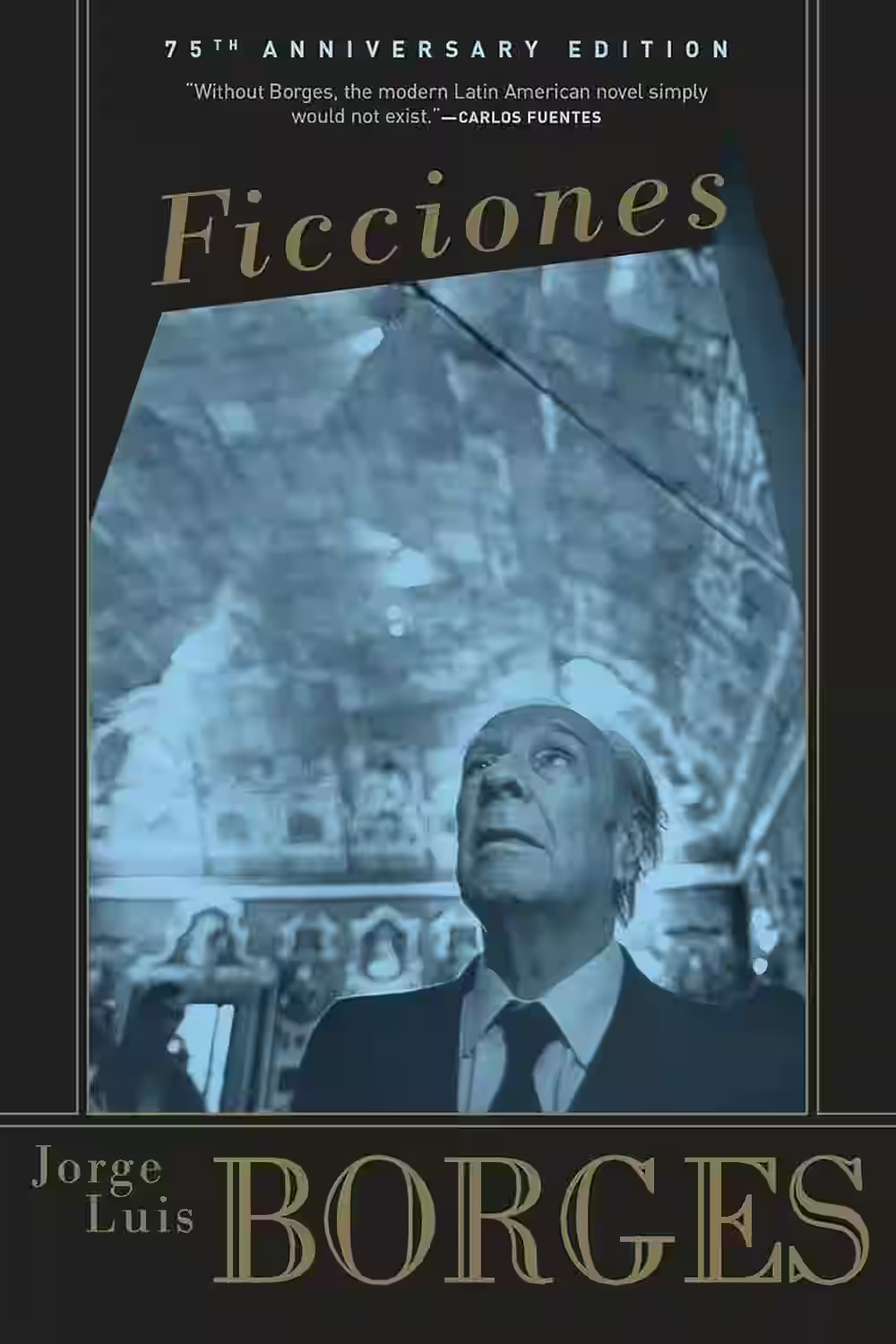
Ficciones is a celebrated collection of short stories by Argentine author Jorge Luis Borges, blending philosophy, literature, and speculative fiction. Each story is a mind-bending exploration of reality, time, identity, and infinity. Borges uses fictional texts, labyrinths, mirrors, and imagined worlds to question the nature of truth and knowledge. Highlights include “The Library of Babel,” where the universe is imagined as an infinite library, and “Tlön, Uqbar, Orbis Tertius,” about a fictional world overtaking reality. Rich in allusions and intellect, Ficciones is a masterwork that continues to influence writers, philosophers, and readers around the globe.
About Jorge Luis Borges
An Argentine short-story writer, essayist, poet, and translator, considered one of the most significant figures in 20th-century literature. His labyrinthine, philosophical short stories often explored themes of infinity, identity, mirrors, dreams, and reality, blurring the lines between fact and fiction. Borges's intellectually stimulating and meticulously crafted prose, filled with intricate allusions and metafictional elements, created a unique literary universe that continues to influence writers and thinkers worldwide.
Other Books by Jorge Luis Borges
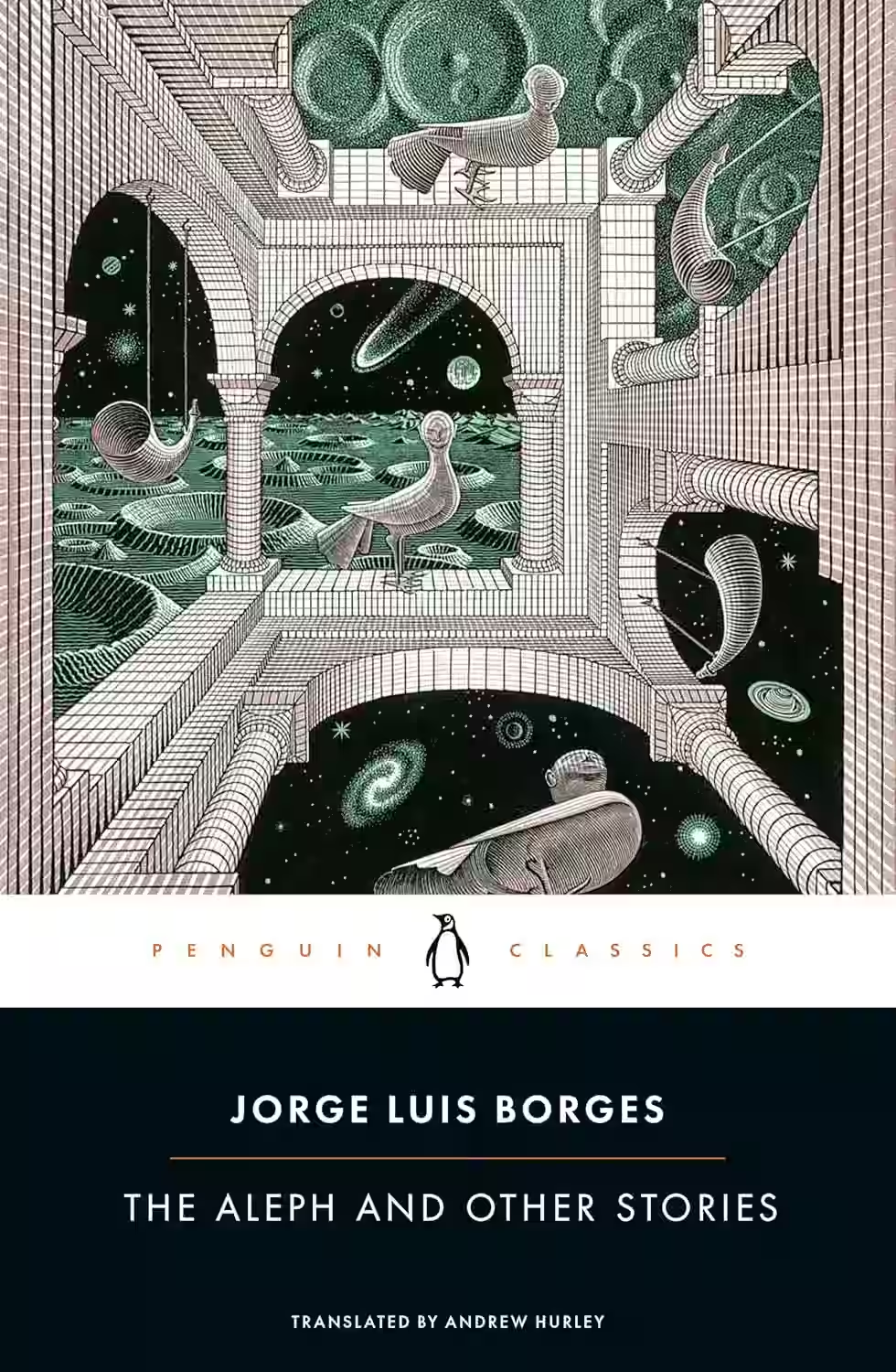
The Aleph
The Aleph is a collection of short stories by Argentine writer Jorge Luis Borges, blending metaphysics, literature, and fantasy. The title story centers on a man who discovers a point in space—the Aleph—that contains all other points, allowing him to see the entire universe simultaneously. The collection explores themes of infinity, memory, identity, and the nature of reality, often through imagined texts, paradoxes, and labyrinths. Rich in philosophical depth and literary allusion, The Aleph exemplifies Borges’ unique style: intellectually rigorous yet imaginatively expansive. These stories challenge perception and remain profoundly influential in both world literature and speculative fiction.
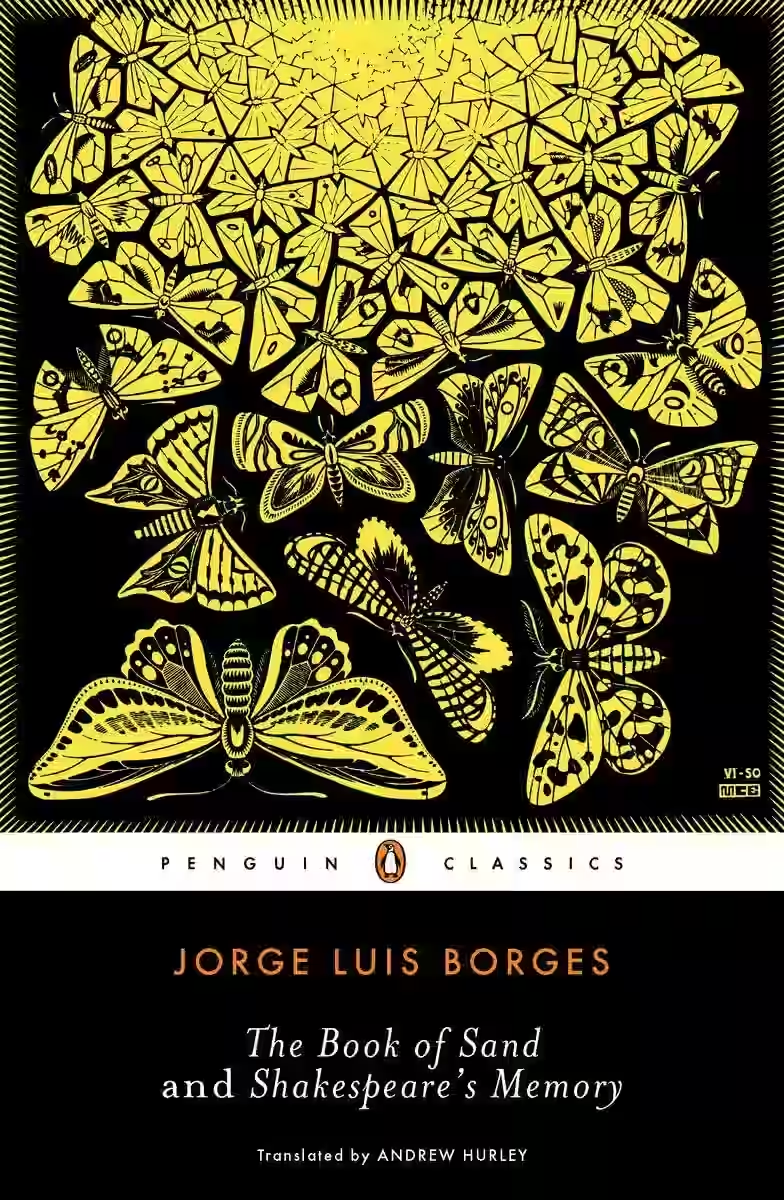
The Book of Sand
The Book of Sand by Jorge Luis Borges is a haunting short story exploring the infinite and unknowable. Narrated by a retired librarian, the tale follows his encounter with a mysterious book—a volume without beginning or end, its pages rearranging themselves endlessly. As the narrator becomes obsessed, the book’s paradoxical nature leads him into existential dread and a loss of control. Borges uses this fictional artifact to meditate on the nature of infinity, obsession, and the limits of human understanding. A masterful blend of metaphysical horror and philosophical reflection, the story is a chilling reminder of knowledge’s seductive and perilous power.
Similar Books
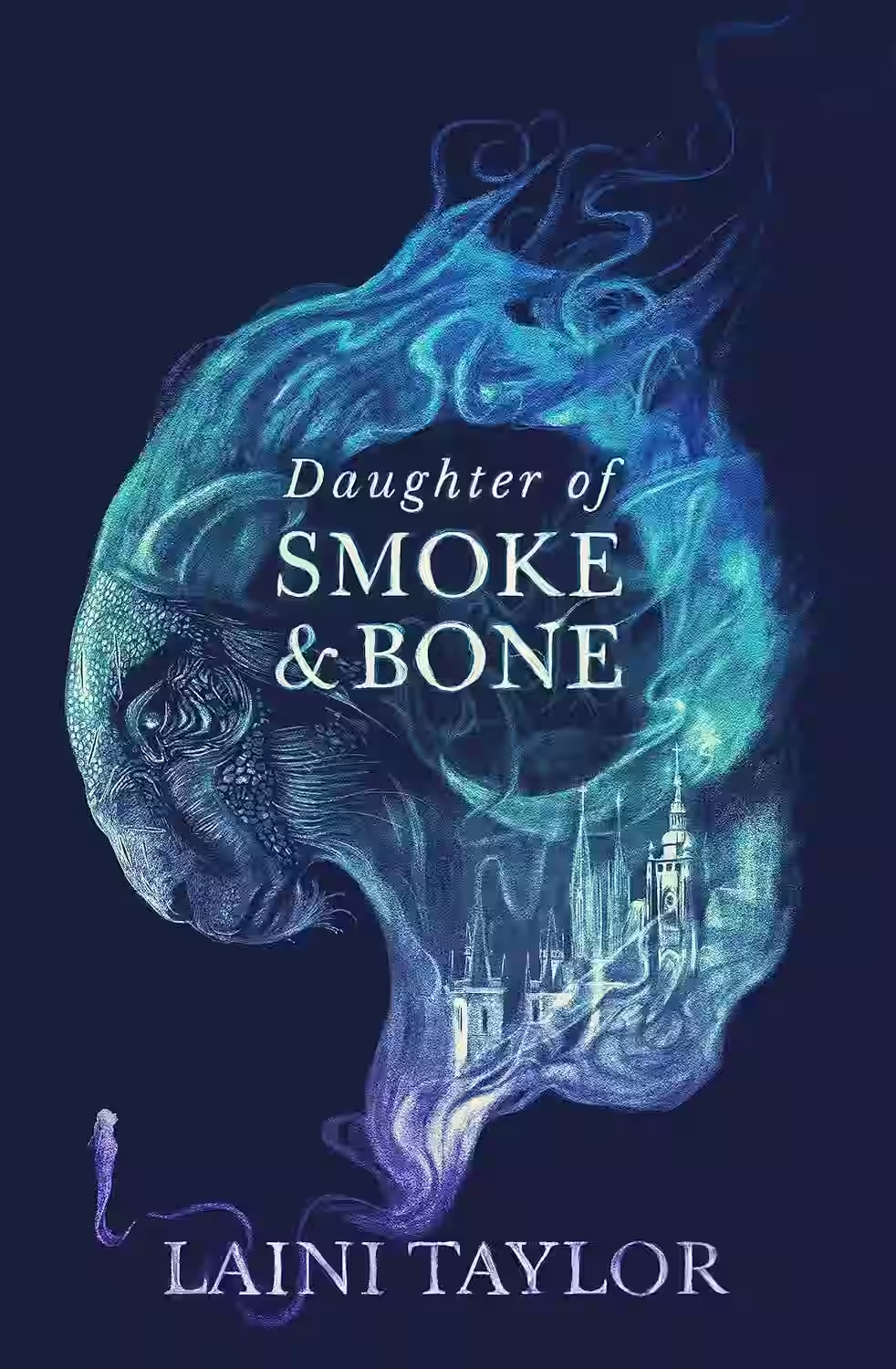
Daughter of Smoke and Bone
by Laini Taylor
Series: Daughter of Smoke & Bone (#1)
Daughter of Smoke and Bone by Laini Taylor is a captivating fantasy novel weaving a complex tale of love, war, and identity. The story follows Karou, an enigmatic art student in Prague, who is drawn into a mystical world of angels and demons when mysterious black handprints appear on doorways around the globe. As she unravels the secrets of her own past, Karou discovers a world torn apart by a centuries-old conflict between seraphim and chimaera. The novel explores themes of belonging, redemption, and the eternal struggle between love and hate. Taylor's vibrant storytelling and rich, imaginative world-building culminate in a compelling narrative that will captivate readers and linger long after the last page is turned.
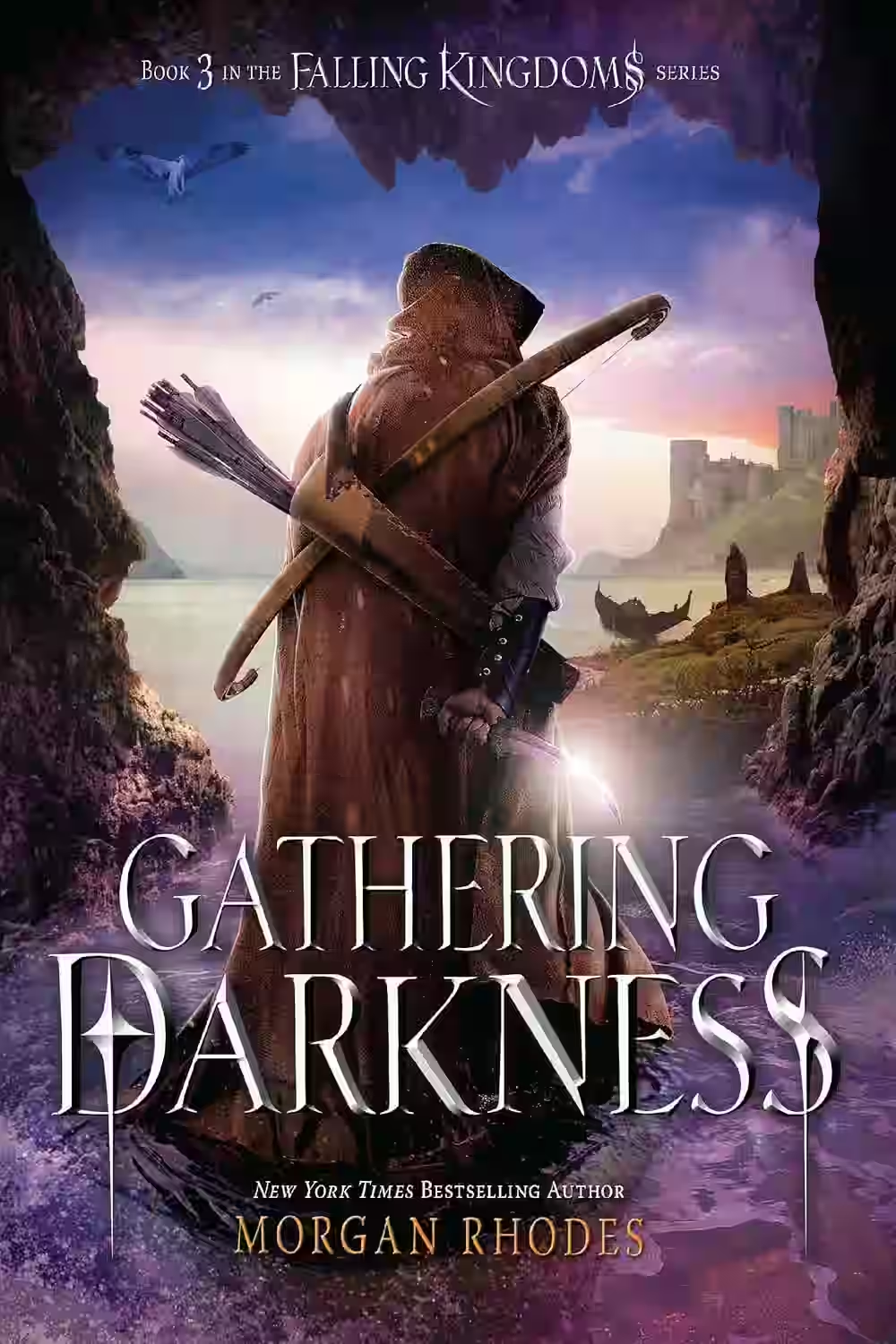
Gathering Darkness
Series: Falling Kingdoms (#3)
In 'Gathering Darkness,' the third installment of Morgan Rhodes' gripping 'Falling Kingdoms' series, the stakes are higher than ever as power struggles intensify across the kingdoms of Mytica. This fantasy epic weaves elements of magic, betrayal, and shifting allegiances, as new alliances form and old rivalries reignite. The story follows multiple protagonists, including Cleo, Jonas, and Magnus, as they navigate a perilous journey where friends can become foes in an instant. The narrative is rich with intrigue and action, capturing the reader with its well-developed characters and unpredictable twists. Rhodes skillfully blends these themes to craft a captivating tale of ambition and survival that hooks readers from beginning to end.

A Christmas Carol
In Charles Dickens' "A Christmas Carol," bitter old miser Ebenezer Scrooge is visited by three ghosts on Christmas Eve who show him visions of his past, present, and future. These supernatural encounters force Scrooge to confront his selfish ways and witness how his actions affect others.
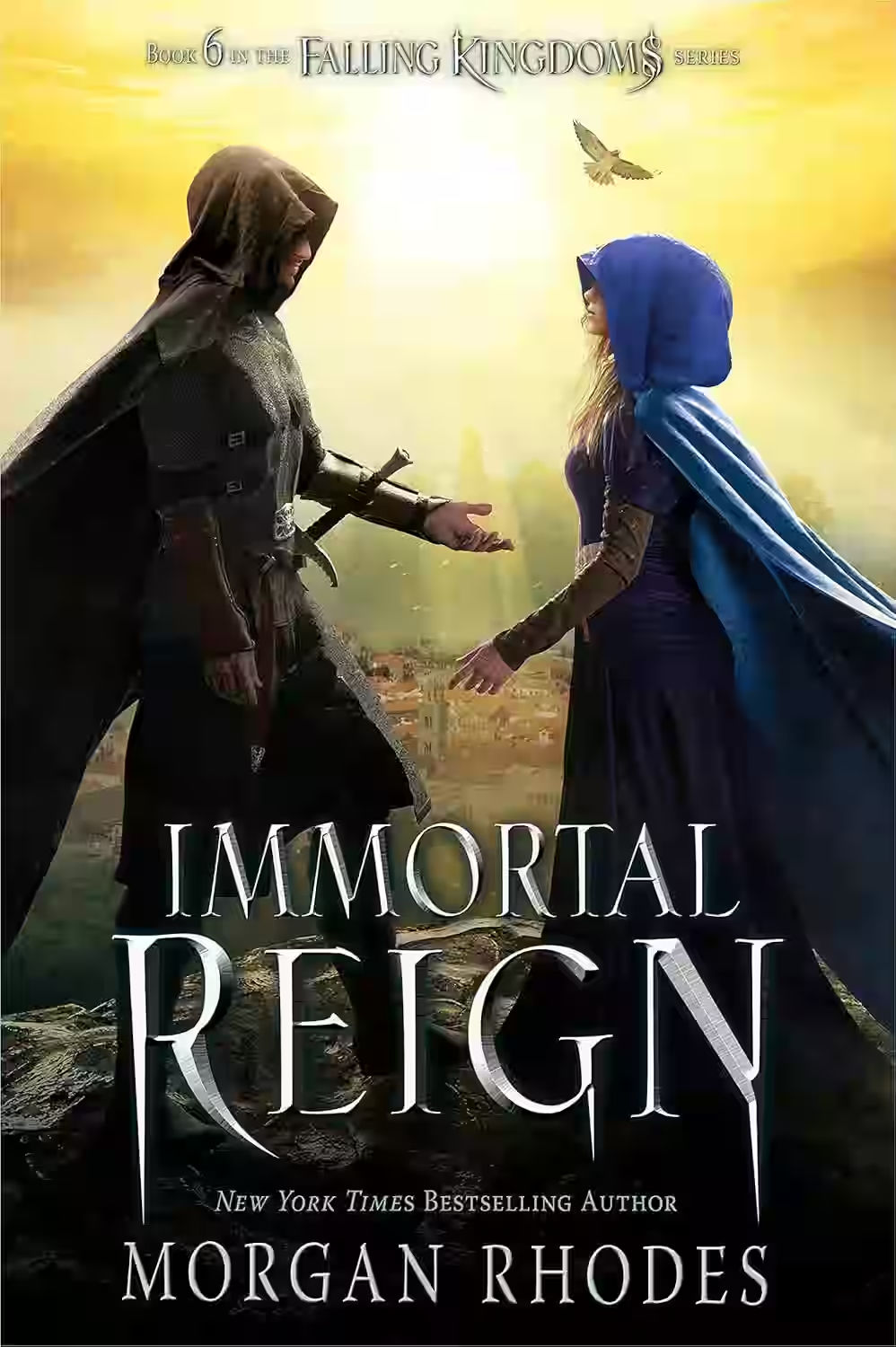
Immortal Reign
Series: Falling Kingdoms (#6)
In 'Immortal Reign,' the gripping sixth installment of Morgan Rhodes’ high-stakes Falling Kingdoms series, the future of Mytica hangs in the balance as old alliances crumble and new battles erupt. This epic conclusion weaves together the destinies of Princess Cleo, Prince Magnus, and their allies, who must navigate perilous landscapes and treacherous political waters to reclaim their kingdom from chaos. Themes of power, love, and sacrifice are explored as characters confront both external enemies and their own inner demons. Rhodes brilliantly concludes her series, delivering an adrenaline-fueled narrative brimming with tension and emotional depth. Fans of the series will appreciate the complex character development and the resolution of long-standing conflicts, making it a satisfying end to the saga.